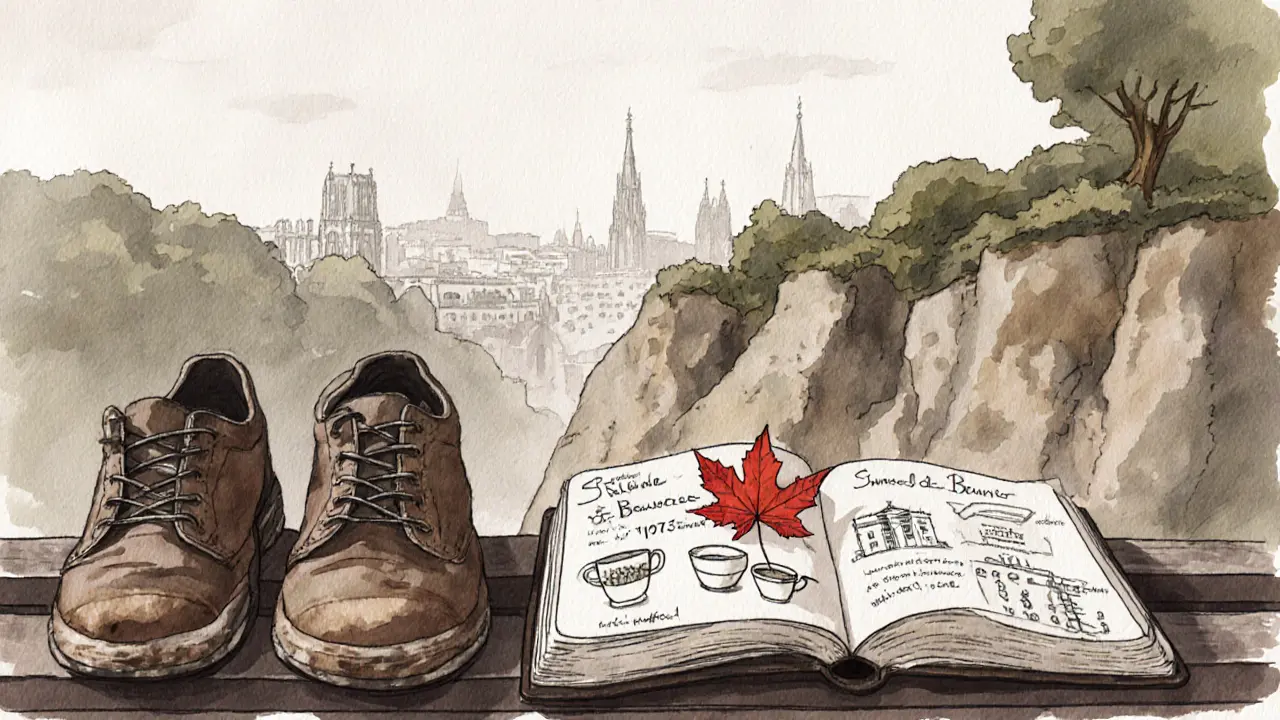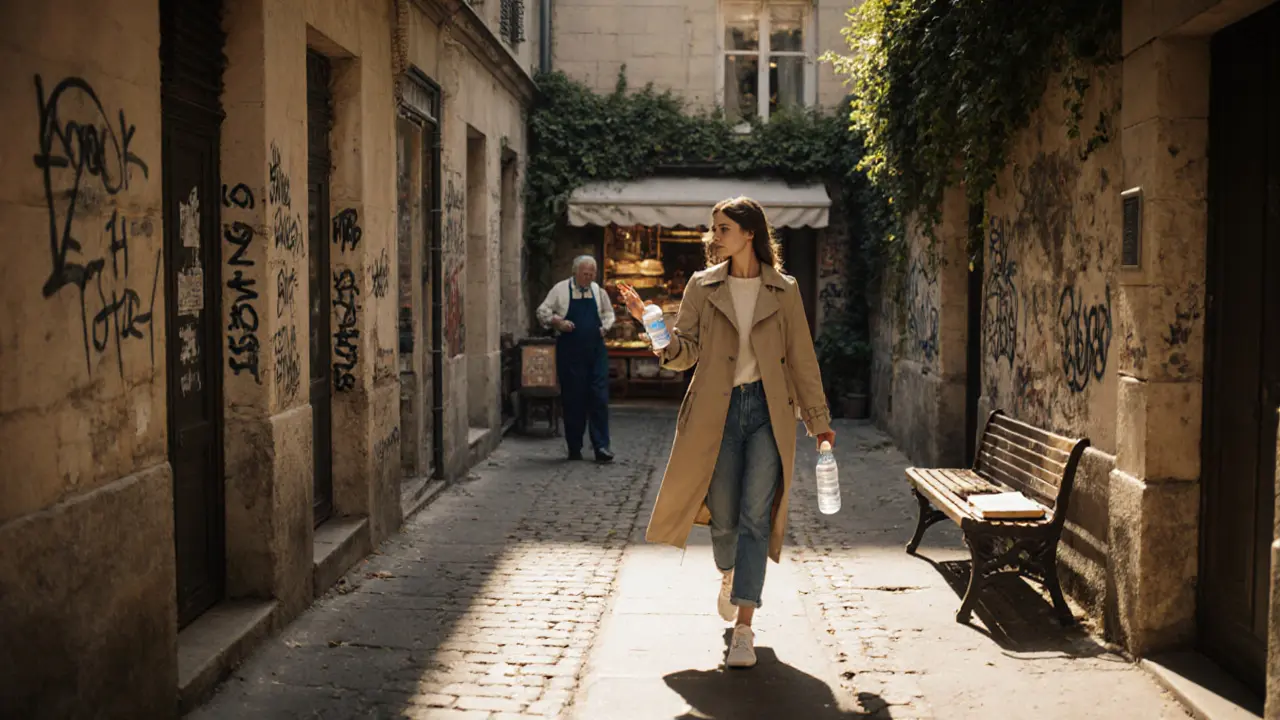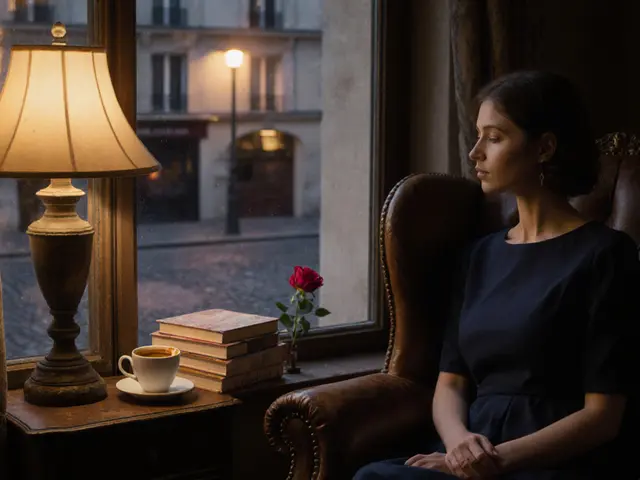Paris isn’t just the City of Light-it’s a city that rewards those who know where to look. Most tourists stick to the Eiffel Tower, the Louvre, and cafés in Montmartre. But if you’ve been before, or if you’ve spent time in Paris without feeling like you really got under its skin, you’re not alone. The real Paris-the hidden courtyards, the quiet bookshops with decades of history, the bakeries that don’t appear on Google Maps-isn’t found in guidebooks. It’s found through people who live it.
Why a traditional tour doesn’t cut it
Standard guided tours in Paris are efficient. They’re scheduled. They’re safe. And they’re often crowded. You stand in line with 30 other people, headphones on, listening to a script that’s been repeated thousands of times. You see the same spots, hear the same facts, and leave with the same photos as everyone else.What you don’t get is context. You don’t hear why that alleyway in Le Marais was once a hub for 1920s poets. You don’t know which boulangerie still uses the same sourdough starter from 1947. You don’t learn where the locals go for a quiet glass of wine after work-because those places aren’t on TripAdvisor.
That’s where the idea of a private, culturally aware companion comes in. Not a tour guide in the traditional sense. Not a driver. Not a translator. Someone who knows Paris like the back of their hand-and is willing to show you the parts most visitors never see.
Who are the women behind the experience?
The women who offer this kind of companionship in Paris aren’t just there for the money. Many are multilingual, well-traveled, and deeply connected to the city’s rhythm. Some studied art history. Others worked in museums, galleries, or publishing before shifting into private guiding. A few have lived in Paris their whole lives, raised families here, and still know the exact corner where the best chestnut tart in the 6th arrondissement is sold.They don’t wear uniforms. They don’t carry clipboards. They wear jeans, carry a reusable water bottle, and know which metro lines are least crowded at 7 a.m. They remember your coffee preference. They notice when you linger in front of a painting and quietly say, “That one’s by a woman who was banned from the Salon. She painted it in secret.”
These women aren’t selling sex. They’re selling access. Access to neighborhoods tourists don’t dare wander into alone. Access to conversations with artists, chefs, and antique dealers who won’t talk to strangers. Access to moments that feel personal-like being invited into a tiny wine bar where the owner pours you a glass of Beaujolais and tells you about his grandfather’s vineyard, because you asked the right question.

How it actually works
It starts with a conversation. Not a booking form. Not a price list. A real chat-usually over email or messaging-about what you’re curious about. Do you want to understand French cuisine beyond croissants and cheese? Are you fascinated by post-war architecture? Do you want to walk through the same streets as Simone de Beauvoir?Based on that, a match is made. Someone who shares your interests. Someone who speaks your language-not just French or English, but the language of curiosity. You agree on a day, a starting point, and a loose plan. No fixed itinerary. No rush. No ticking clock.
One client wanted to see Paris through the eyes of a 1970s feminist. Her guide took her to the former offices of Le Monde’s women’s section, to the café where the first lesbian bar in Paris opened, and to a small archive where handwritten letters from women who fought for abortion rights are still preserved. No sign. No plaque. Just a quiet room with a librarian who handed them a folder and said, “They didn’t want to be famous. But they wanted to be heard.”
Another client, a retired engineer from Ohio, wanted to understand how Parisians live with such little space. His guide showed him a 22-square-meter apartment in the 11th that’s been in the same family since 1953. They sat on the balcony, drank espresso, and talked about how French families adapt, reuse, and cherish every inch.
The unspoken rules
This isn’t a transaction. It’s a mutual exchange. The women who offer this service don’t work with clients who treat them as props. They don’t work with people who expect them to be silent, decorative, or available on demand. They work with people who are genuinely interested in learning.There’s no set price. No fixed hourly rate. Most operate on a suggested donation model-anything between €100 and €300, depending on length and depth. Some clients leave a book. Others send a photo of their trip years later, with a note: “Still thinking about that morning in Saint-Germain.”
Boundaries are clear. This isn’t a romantic arrangement. It’s not a fantasy. It’s not a date. It’s a cultural exchange. The women set the tone. They decide who they meet. They walk away if someone crosses a line. And they do-often.
One woman told me, “I’ve turned down three people this month because they asked me to wear heels and pose in front of the Seine. I’m not a mannequin. I’m a historian with a coffee habit.”

What you gain-and what you leave behind
You leave with more than photos. You leave with stories. You leave with a deeper understanding of why Parisians argue about bread, why they close their shops at 2 p.m., why they don’t smile at strangers but will invite you in for tea if you ask about their cat.You also leave behind the idea that Paris is a postcard. It’s not. It’s messy. It’s loud. It’s beautiful in unexpected ways. And it’s best experienced with someone who knows its soul-not its surface.
Most tourists think they’ve seen Paris. But if you’ve never sat on a bench in Parc des Buttes-Chaumont with someone who tells you about the time the city almost tore it down to build a highway-if you’ve never heard the real reason why the Latin Quarter smells like incense and old paper-you haven’t really been there.
Is this for everyone?
No. And that’s the point.If you want a quick selfie with the Mona Lisa, skip this. If you want a luxury car and a champagne toast at the top of Montmartre, this isn’t for you. If you’re looking for a fantasy, walk away.
But if you want to understand Paris as it lives-not as it’s marketed-you might just find the right person. Someone who doesn’t sell a service. Someone who shares a perspective. Someone who remembers your name.
Paris doesn’t need more guides. It needs more listeners.
Are escort girls in Paris legal?
Yes, being an escort or companion in Paris is legal as long as no explicit sexual services are exchanged for money. French law prohibits prostitution-defined as exchanging sex for money-but it does not criminalize companionship, conversation, or social interaction. Many women offering cultural tours operate within this legal gray area, focusing on time, knowledge, and connection rather than physical intimacy. Authorities rarely interfere unless there’s clear evidence of sexual transactions.
How do I find a reputable companion for a cultural tour?
Reputable individuals rarely advertise openly. Most build their client base through word of mouth, private forums, or trusted agencies that vet clients for respectful intent. Look for platforms or communities focused on cultural exchange, not dating or adult services. Ask for references. Request a preliminary conversation. If someone pushes for payment upfront, avoids personal questions, or refuses to discuss their background, walk away. The best guides are transparent about their experience and boundaries.
What should I expect during the tour?
You’ll walk. A lot. You’ll talk. You’ll sit in quiet corners, sip coffee, and listen. There’s no fixed route. The guide will adapt to your interests-whether that’s literature, fashion, food, or urban history. You’ll visit places tourists don’t see, hear stories rarely told, and possibly meet locals who wouldn’t speak to a stranger otherwise. The experience is intimate, slow, and deeply personal. It’s not a performance. It’s a conversation.
How much should I pay?
There’s no standard rate. Most clients offer between €100 and €300 for a 4-6 hour experience, depending on the depth and duration. Payment is typically made in cash or via bank transfer after the tour. Some guides accept gifts-a book, a bottle of wine, a handwritten note-as part of the exchange. The key is to pay what feels fair for the value received, not what you’re told to pay. Remember: this is not a service industry. It’s a human exchange.
Is this safe for solo travelers?
Yes, if you take basic precautions. Meet in public places first. Share your itinerary with someone you trust. Avoid meeting in private residences unless you feel completely comfortable. Most guides prefer meeting in cafés, libraries, or museums for the first encounter. Trust your instincts. If something feels off, leave. Reputable guides prioritize safety and respect. They’ve turned down clients before-and they’ll do it again.




